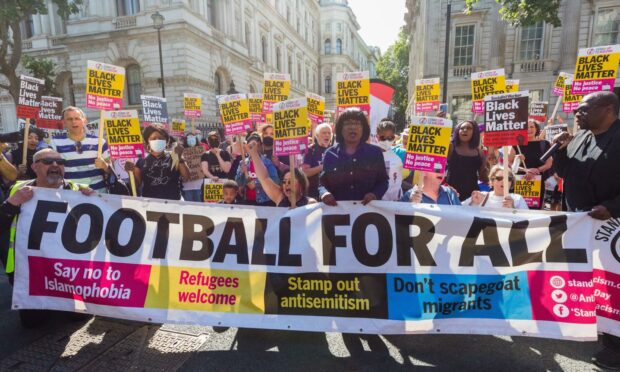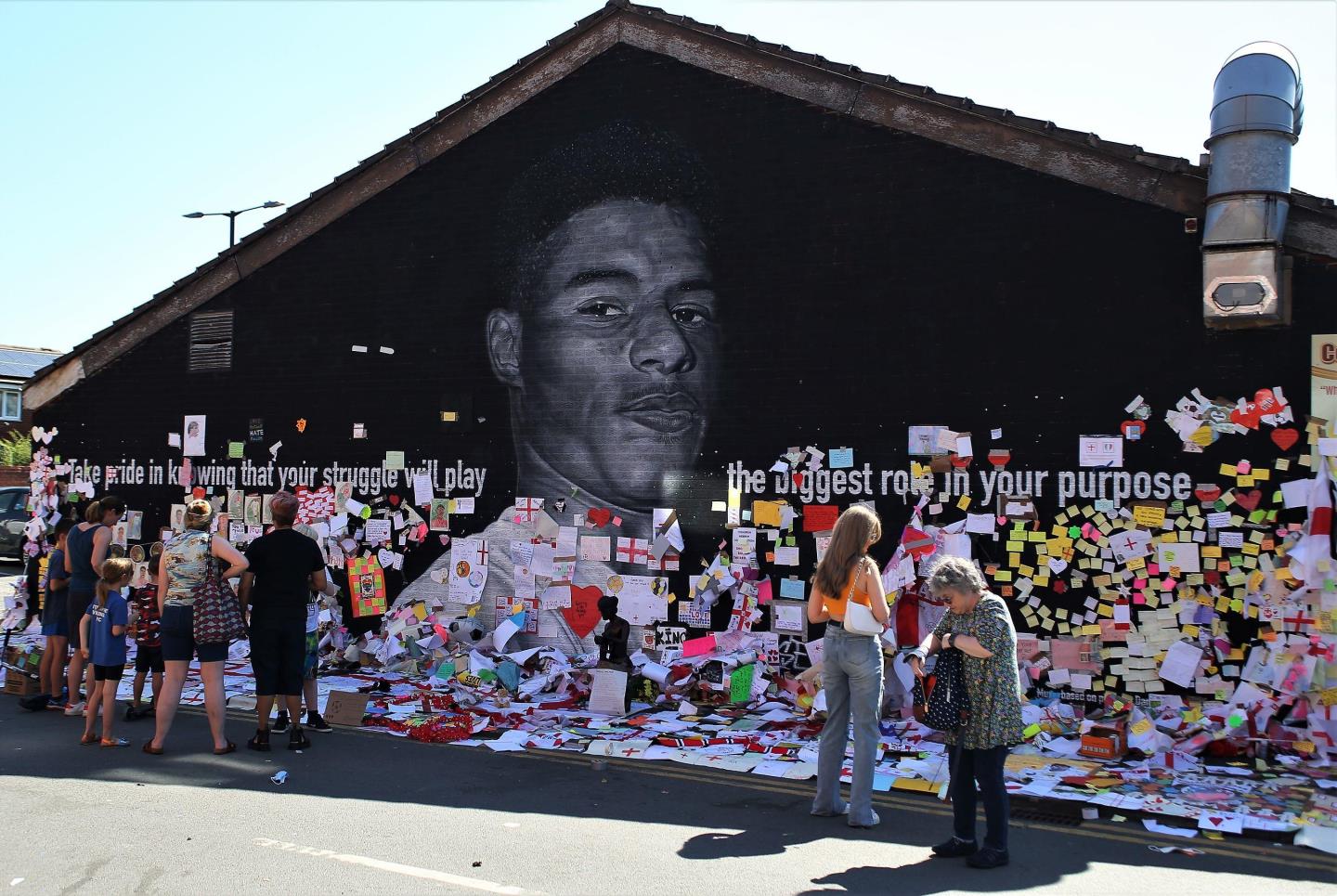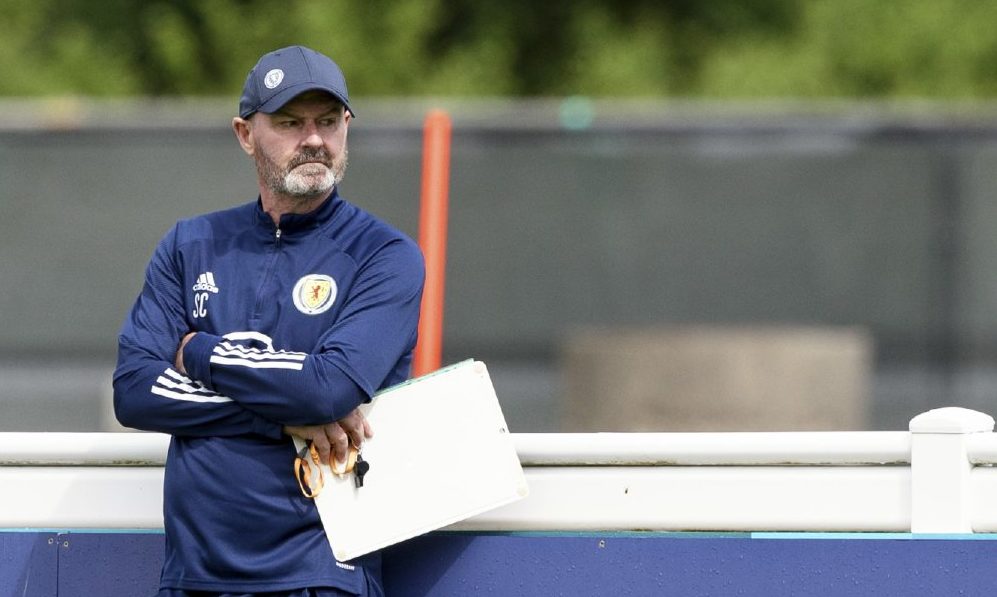For this year’s European Football Championship, I promised myself I wouldn’t be so anti-English as I watched their national team progress through the knockout stages.
The current crop of players is rife with socially conscious role models and not at all insufferably arrogant as England teams have sometimes seemed to be.
The same can’t be said for England supporters and some media pundits, whose comments and behaviour often rile Scottish fans into determined support of whoever England are playing against.
So after enduring half-time “analysis” in which the pundits zealously explained how England had dominated Italy, I found myself celebrating when Italy’s equaliser went in.
I’m sure many Scottish football fans had a similar reaction. In fact, I know many cheer against England no matter the match or circumstances.
However, much as the behaviour of English supporters during and after the Euro 2020 final has rightly been denounced, we should be wary of reactionary hatred directed at the English football team, or indeed of thinking Scotland on a moral high ground in relation to them.
Status of men’s football allows for social injustices to continue
While it isn’t only true of Scotland, it is the case that, in Scotland, the status afforded to men’s football is a key way in which several social injustices remain unquestioned yet embedded in mainstream culture.
Men’s football matches are legitimised spaces and times where male spectators get to pretend that women and queer people do not exist.
Women can play the sport, but they will not receive the same attention or plaudits as men. The same dynamic plays out in many walks of life
We need only look at the mismatch between the national reaction to Scotland’s women qualifying for the 2019 World Cup and Scotland’s men qualifying for Euro 2020 to see an example of how sexism operates today.
Women can play the sport, but they will not receive the same attention or plaudits as men. The same dynamic plays out in many walks of life where historic gender inequality impacts social relations and power structures.
Heterosexual, cisgender, white men retain an ability to capture and hold the national attention in a way that other people do not.
It was never just about the game
Some say that, in the case of football, it’s only about the game – identity doesn’t come into it – but of course it does. We await our first active professional male football player to come out in the UK since 1990 precisely because presenting an identity defined as heterosexual, cisgender, white, and male is a passport that affords you attention and status which is otherwise unattainable.
Consciously or otherwise, many jostle to make sure they’re behaving in a way that affirms this identity’s prominence, at the expense of those whose identities do not correspond.
This is why the English football team offers me great hope. For the first time in my lifetime, I see active professional male football players using their platform to call out and encourage conversation on social injustices. They have paid a price for displaying this courage – as we have seen in the reactions to English players taking the knee before games.
On the other hand, the Scotland team said that the gesture had become “diluted” and therefore they would not make it.
Announcing this decision, manager Steve Clarke explained that Scotland would make an exception for their game against England, saying: “We will stand against racism and kneel against ignorance”. The distinction he draws here – between racism and ignorance, between the England game and others – is vague and, without further explanation, seems arbitrary.
This stance warranted further interrogation but the decision was not much scrutinised in the Scottish media at the time. He’s just a football manager, not a politician, so the logic follows that it is not his or the Scotland team’s responsibility to be positive leaders on racial inequality.
Critics of the England team want to treat racial inequality in the way that we have become accustomed to talking about LGBTQ+ rights – we have a month for that, don’t we?
Even allowing for that tenuous line of argument, it was uncomfortable to see a group of predominantly white people unilaterally decide that a new gesture against racism – to stand – was more effective than taking the knee.
If anything, the England team’s decision to continue taking the knee is only becoming more effective with time as it insists that racial inequality is routine, normalised, and sustained by actions people are continuing to take.
You can play or watch football – but don’t challenge the status quo
Critics of the England team want to treat racial inequality in the way that we have become accustomed to talking about LGBTQ+ rights – we have a month for that, don’t we?
It’s all right to talk about it for a while, but then it should pass so that we can get back to things being “normal” – which is always a code word for ignoring the pole position that heterosexual, cisgender, white men hold in society.
It is unfortunate that the Scotland team’s decision – deliberately or not – fell in line with this reaction.
I repeat these words – heterosexual, cisgender, white, and male – because too often they fly under the radar. Women are told they make things about gender; queer folk are told they make things about sexuality; people of colour are told they make things about race. However, our everyday lives are already about all of these things, whether that is apparent to beneficiaries of inequality or not.
This is particularly true of men’s football. You can play or watch, as long as you don’t challenge the order.
It is good to see the English team draw attention to this unspoken rule, and we would do well to look harder at why the conversations they have generated have not been taking place in Scotland to the same extent.
Darryl Peers is a writer from the north-east of Scotland



